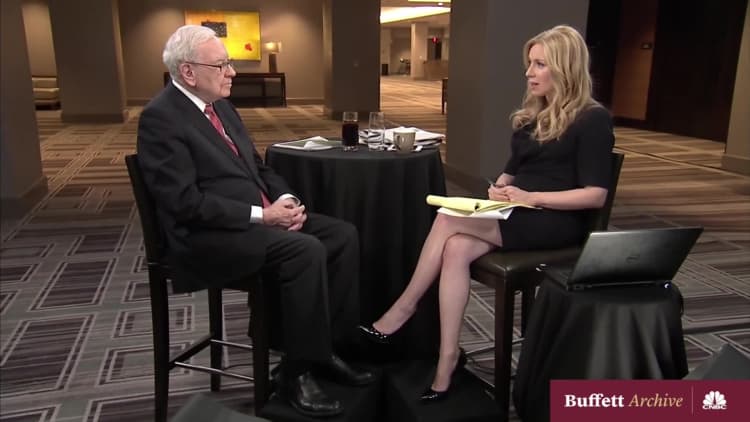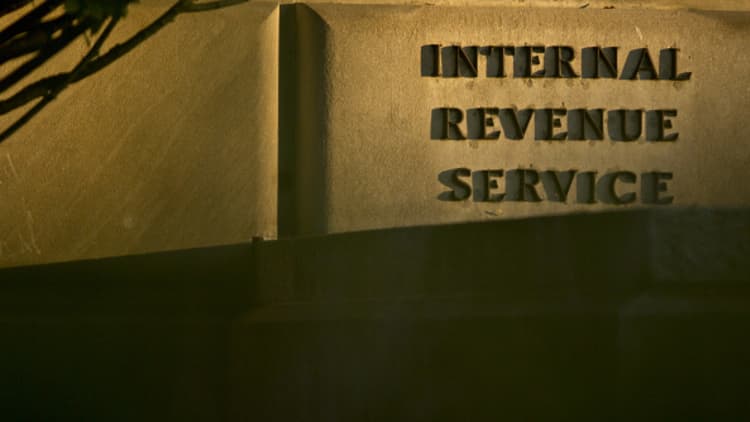If your small business woos new clients with dinner, drinks and seats to basketball games, you likely can't take a tax break for those expenses.
The Tax Cuts and Jobs Act, which went into effect in January, changed the way business owners can claim deductions for meals and entertainment.
Prior to the new tax law, employers were able to deduct 50 percent of the cost of entertainment-related meals, 50 percent of the face value of a ticket to a sporting event and 100 percent of meals provided to workers for the employer's convenience.
As of 2018, those tax breaks are facing changes.
That means there's no deduction for sporting events or for entertainment-related meals, and meals and snacks offered at work are 50 percent deductible for now but become nondeductible after 2025.
Further, client business meals that were once 50 percent deductible under the old law will only keep that treatment under the new tax code if business is conducted.
"For many businesses, that affects them: A big part is entertaining clients," said Kathy Keylor, CPA and director at MAI Capital in Cleveland.
Accountants say the new law is ambiguous as far as whether certain meals and entertainment are deductible, based on the context. That is leading to confusion for accountants and their small business owner clients.
"For example, if a company hosts a party to roll out a new product, is that nondeductible entertainment or a deductible promotion cost?" asked Tim Steffen, CPA and director of advanced planning at Baird in Milwaukee.
"How will companies maintain the records needed to distinguish between nondeductible entertainment and deductible meals?" he asked.
Lack of clarity
In April, the American Institute of CPAs sent a letter to the Treasury and the IRS seeking clarity over the new law's treatment of meals and entertainment.
"Because these expenses are nondeductible, it puts other things in jeopardy for deductibility," said Kristin Esposito, senior manager for tax policy and advocacy for the institute.
The change to the treatment of these expenses raises questions over things like whether advertising that's integrated with an entertainment event would be deductible, she said.
Charitable sponsorships that take place amid the backdrop of an entertainment event are also up in the air.
"Getting rid of the entertainment expense bleeds into things like advertising or charitable contributions," said Esposito. "These other areas became uncertain because the law doesn't fill it out yet. The IRS and Treasury need to draw the lines."
Drinks and snacks
A more common, but equally confusing scenario, might be when a business owner takes a client out to lunch or for a drink.
"Is that considered entertainment and not deductible?" asked Steffen. "Or is it an actual business-related expense, and therefore 50 percent of the cost is deductible?"
Even snacks at work are in question.
Under the old law, employer-provided snacks, water and coffee were 100 percent deductible to the employer. Now, they're only 50 percent deductible until 2025. After that, they'll be nondeductible.
Don't worry if you enjoy throwing holiday parties and summer picnics at work, though. Those perks remain fully deductible to the employer under the new law.
Document everything
Accountants are awaiting further guidance from the IRS and Treasury.

For now, the best practice for business owners is to maintain separate accounts for what's fully deductible and what's partially deductible and what isn't deductible.
"You should have an account for entertainment, another for business meals and another for holiday party meals," said Keylor.
"Make it very detailed; you need to know what kind of expense it is when you get the receipt and code it properly in the accounting system," she said.
"You can't dump it all into 'meals and entertainment' anymore," said Keylor.
More from Personal Finance
How to figure out if you qualify for this 20 percent tax break
Donating time off to exhausted new parents is the latest office trend
This bus could be your ticket to a new job
WATCH: IRS to issue rules for state and local taxes



